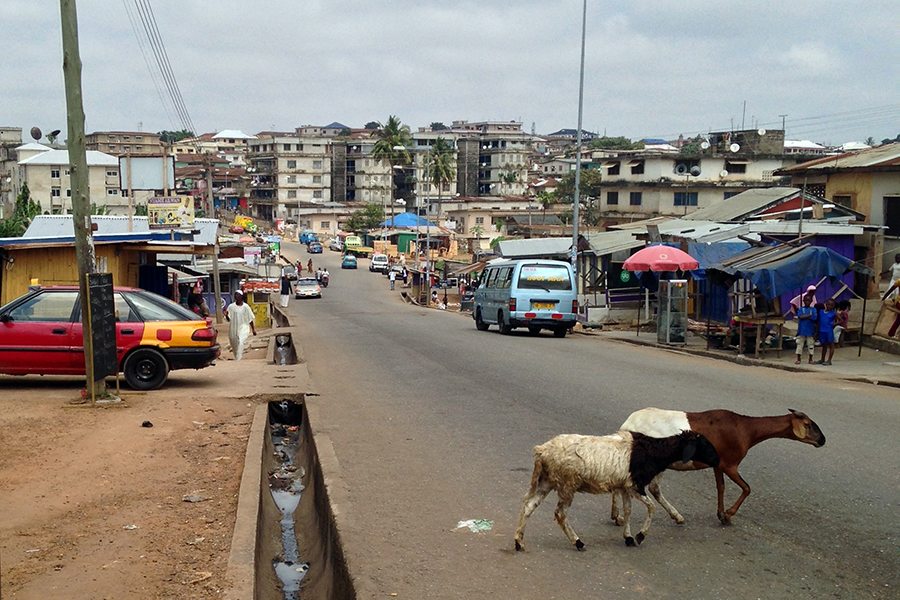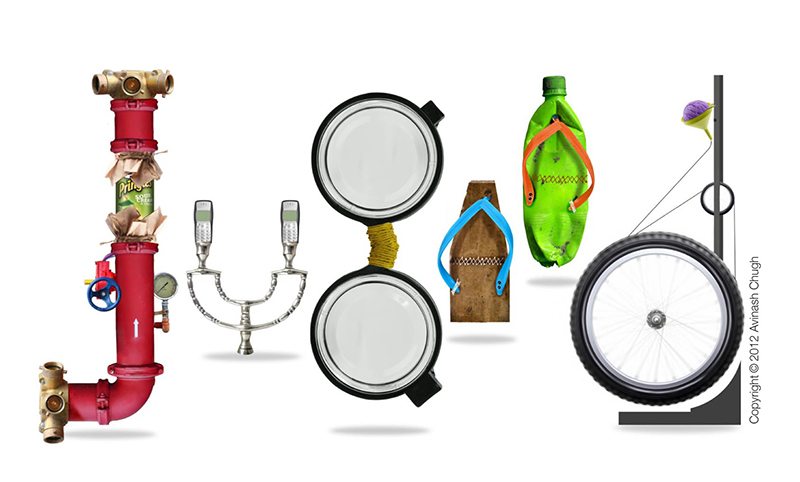I paused for a moment in the no-man’s-land of international travel, staring ahead at the double doors marked “No Re-entry.” The sign might as well have read “No turning back now.” I walked through those doors, and immediately every sense was activated by unfamiliar sights, smells, and sounds. As I entered the main airport terminal in Lima, Peru, I felt overwhelmed, and frankly a bit frustrated that, despite eight years of studying Spanish in high school and college, the only word I recognized amid the conversational chaos was “taxi.”
I assumed my studies of Spanish language and culture had prepared me to fly to South America on a one-way ticket. I couldn’t believe how wrong I had been. As I stood in the Lima airport, I realized that the days of being ‘saved by the bell’ were behind me. This was full-on immersion, and the only way to navigate it was to jump head first into the unknown.
What I did not anticipate was how inspired I would be by everything I saw and experienced. Four months and six countries later, I had a new appreciation for the human spirit, and for the extraordinary abilities of ordinary individuals. In Peru, I watched women carry heavy baskets of produce on their heads for miles, apparently unfazed by the weight and lack of a visible destination ahead of them. In Bolivia, I spent time with the Uru and learned how they build thriving communities on reed islands in Lake Titicaca. In Chile, I volunteered at a nursery, caring for children who lacked resources that I took for granted: money; clothes; even parents, in a few cases. Yet all of the children laughed, learned, and loved with an exuberant joy that belied their circumstances.
Each person I met on my journey reinforced my realization that strength of character does not come from what you have, but rather from what you do with the hand you’re dealt. However, my innate belief in social equality—or at least fairness—compelled me to try to even out the proverbial playing field by helping resource-constrained communities solve seemingly surmountable challenges.
“Each person I met on my journey reinforced my realization that strength of character does not come from what you have, but rather from what you do with the hand you’re dealt.”
Upon my return, I applied for jobs at the typical targets of those trying to make a change in the world—an array of global NGOs and philanthropic agencies. But I quickly learned the catch-22 of international development: it’s difficult to get a development job without development experience, and it’s difficult to gain development experience without a development job. I was soon forced to temporarily abandon the search for my dream job in order to replenish my depleted post-travel bank account.
A couple years later, I had landed a position in Washington D.C. as a strategy and operations Consultant for Deloitte’s Federal Practice. Working for clients within the Departments of Defense, Justice, and Homeland security bolstered my business skills as well as my repertoire of entertaining stories. One of my favorites involved a helicopter ride to catch drug smugglers hand-carrying bales of marijuana across the Rio Grande into Texas. Furthermore, through work I was able to participate in and even lead ‘extra-curricular’ projects of interest to me, such as researching agricultural development in Nepal and advising a U.S. non-profit on expansion into other countries.
At Deloitte, I also had the chance to support a partner who was writing a book on global trends spanning the public and private sectors. Frugal innovation was my area of focus; it opened my eyes to inventions ranging from a soccer ball-turned-energy source to a corn husk water filter that are being developed for those around the world who live below the poverty line.
I learned about a growing number of low-cost products and services that bridge the gap between what the government provides and what is readily available for purchase at the base of the pyramid. In India, this idea has gained such popularity that the Hindi word for this type of innovation, jugaad, loosely translated as “a workaround,” has become the industry term. Essentially, jugaad empowers those who lack resources to serve their own needs in ways that make sense for them at prices they can afford.
“Essentially, jugaad empowers those who lack resources to serve their own needs in ways that make sense for them at prices they can afford.”
This research stirred up fond memories of the people I had met in South America, who overcame institutional and infrastructural deficiencies through ingenuity, resourcefulness, and a great deal of grit. Frugal innovation seemed to be a key component in forging a path to progress and reducing global economic disparities. Imagine the possible impact of tenacious creativity on the world’s most challenging problems! With a renewed and clarified desire for hands-on social impact (now through frugal innovation), I realized I needed to enhance my business acumen in order to apply it in the context of international development.
This realization brought me to INSEAD, where I cultivated my passion for innovation and social entrepreneurship, spending four months in France and six months in Singapore. I studied an array of subjects, especially in the context of growth markets, in hopes of ultimately serving a company that leverages jugaad.
I was excited to learn about novel products, such as d.light’s solar-powered lighting solutions for those without reliable electricity, as well as business models that I hadn’t encountered before. The Aravind Eye Care System in India, for example, won both a Gates Award for Global Health and a Hilton Humanitarian Award for its “deceptively simple” model of providing eye care (primarily cataract surgery) to those who can afford to pay market rates, and then using the profits to fund care for those who cannot. This solution embodies the notion of working around a country-wide institutional void… jugaad at its finest!
Now that I have the trifecta of an MBA, work experience, and exposure to more than 30 countries through personal and business travel, I am ready to develop and implement innovative solutions in emerging markets.
As an MBAs Without Borders Advisor, I’ll not only have the chance to gain crucial field experience, but also to effect a measurable difference in the growing business I will advise: Clean Team Ghana. The company’s innovation-oriented business model enables consumers whose homes are not served by municipal sewage systems to rent portable, in-house toilets. Clean Team collects the refuse several times per week and is working toward turning it into energy, fulfilling of one of society’s most basic needs—sanitation—with the bonus of a positive by-product.
The company’s path to success does not come without challenges, however. One of the biggest barriers to progress is that people don’t like talking about their own personal sanitation, much less anyone else’s. But the issues don’t stop there. Bureaucracy, a dearth of market data, and, especially lately, frequent power outages all have the potential to undermine sanitation in Ghana.

Clean Team is using an innovation-oriented business model to improve sanitation conditions in Kumasi, Ghana.
Yet, with the right application of jugaad, the company can thrive and even adapt itself as it enters new markets. For example, Clean Team’s waste collection is undertaken by tuk-tuk drivers who must find customers’ homes without reliable street naming and house numbering. Clean Team’s ‘workaround’ solution to this ubiquitous problem in Kumasi is to capture geo-coordinates for its customers. One of my major projects at Clean Team is to implement technology that will translate this location data (along with other data) into operational efficiencies through customer mapping, resource and route optimization, and navigation assistance.
I have come a long way since the seed of social impact was planted in my mind, but in Ghana I see women carrying water and wears for market on their heads and impoverished neighborhoods that remind me of how my aspiration began and affirm that I am right where I want to be. I appreciate this great opportunity to contribute to ‘the greater good’ through MBAs Without Borders, and with faith in jugaad, I look forward to Clean Team providing a springboard for a life-long career in positive social change.
Krystal Kovalick
Krystal Kovalick is an MBAs Without Borders Advisor in Kumasi, Ghana where she is working with Clean Team, an innovative company seeking to improve sanitation solutions in the region. Krystal graduated from the University of Virginia in 2007 with a Master of Science in Commerce and worked for Deloitte Consulting for four years. She received her MBA from INSEAD Business School, studying in France and Singapore.





Pingback: MWBs Use Business to Build Sanitation Markets in Africa